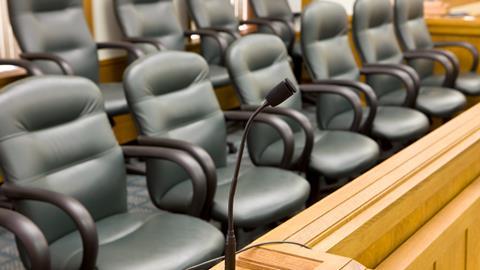There has been an immediate and almost universal rejection of Labour’s proposal that juries might be temporarily reduced from 12 to seven as a measure to help reduce the lamentable backlog in Crown Court trials. As a criminal defence solicitor I do not think such swift condemnation is warranted. Rather than resorting to rhetoric we should be asking whether the change would be effective in allowing more trials to take place more quickly and whether, in fact (rather than in principle) there would be any risk to justice.

The criminal justice system is in the greatest crisis that I have known in more than 20 years of practice. It is failing victims, it is failing defendants, and it is therefore failing society - and more worryingly risks losing society’s confidence. It was already on the brink of collapse before the pandemic with a backlog of well over 30,000 Crown Court trials, the product of years of under-investment and general disinterest by successive governments. The last 10 months have merely served to force open cracks, which those of us who practice have long known are there, and - which is a good thing – has brought this crisis more forcefully to the attention of politicians and the wider public.
Juries serve a fundamental role in British justice. It is reassuring and affirming to know that normal people from all walks of life are trusted with deciding the guilt or innocence of those accused of the most serious offences. Of course it is only the most serious cases that end up in front of a jury. The vast majority of criminal cases are concluded at magistrates’ courts presided over by professional judges or lay magistrates; and in 2019 the Supreme Court held that there was no reason why a former British soldier, Dennis Hutchings, should not be tried on a troubles-related murder charge by a judge alone, in conformity with rules that apply to certain cases in Northern Ireland. In a discussion about the adequacy of different forms of justice it is important to remember that jury trials are only one form of British justice. Nonetheless I hope the juries’ role will not be further diminished. Whatever the outcome for my clients I have never doubted that the jurors responsible have applied themselves honestly and diligently in reaching their verdict.
But is there any magic in the number 12? Verdicts can in fact be accepted from a jury of as few as nine people, which sometimes happens when jurors are discharged due to illness or for other reasons, so this suggestion by Labour does not represent such a seismic shift as may be suggested. Is a decision made by seven people rather than one made by 12 (or nine as may be the case) so different as to undermine the quality of the justice that such a verdict represents? The British justice system is predicated on the principle that the innocent should not be convicted, and in my experience they rarely are. I do not think that a reduction in the number of jurors would make it more likely that the innocent would be convicted.
I am not advocating that this change should be effected. I am advocating for it to be given proper and reasoned consideration. It may prove to be a terrible idea which will have no impact on the backlog of Crown Court cases – certainly this idea alone is not enough to resolve the wider crisis in the criminal justice system. But the idea should be properly examined. It seems to me, that if we are serious about saving this sinking ship, then this idea and ideas like it need to be considered and not dismissed with a knee-jerk response.
Jonathan Grimes is a criminal litigation partner at Kingsley Napley LLP
































6 Readers' comments